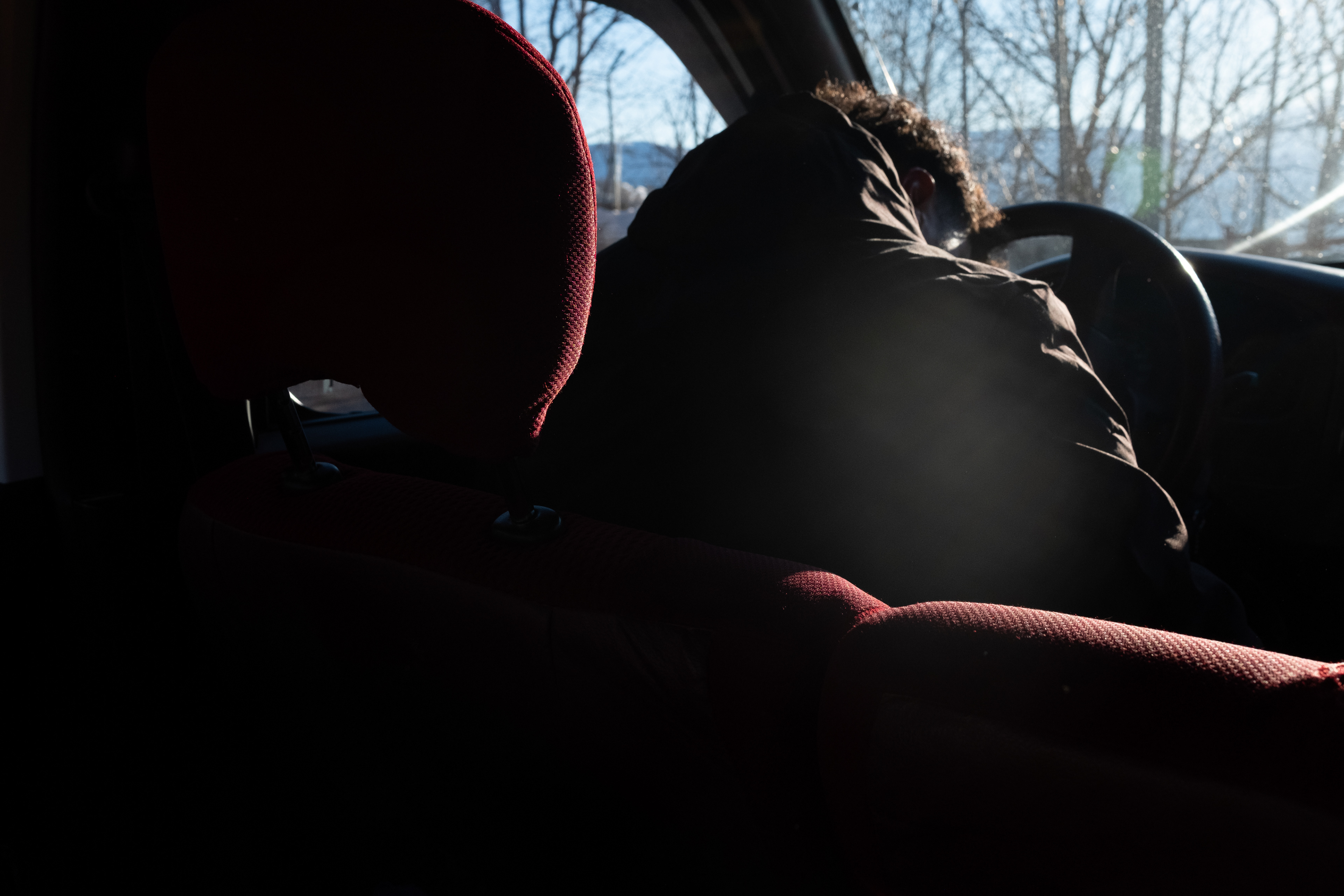
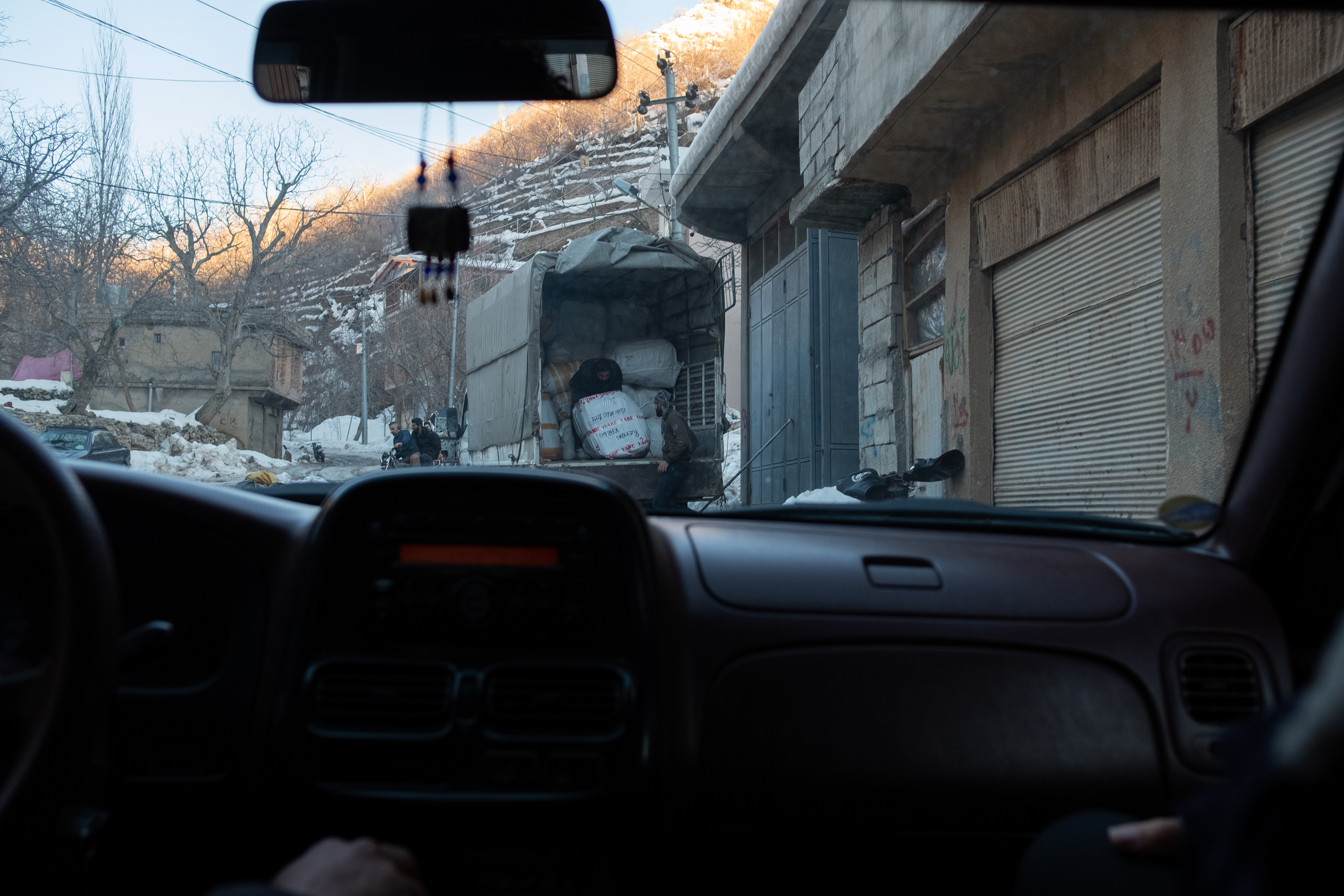
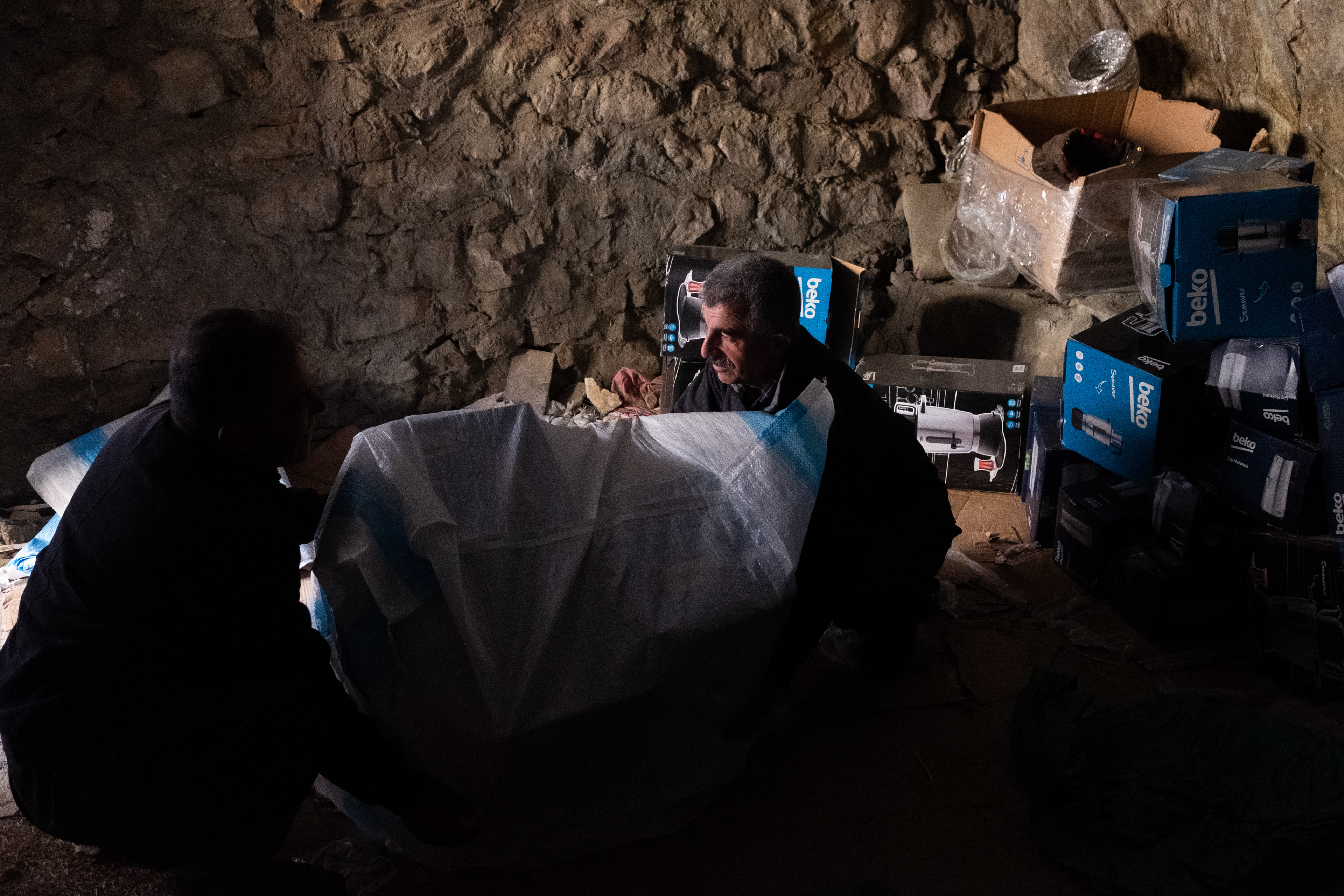
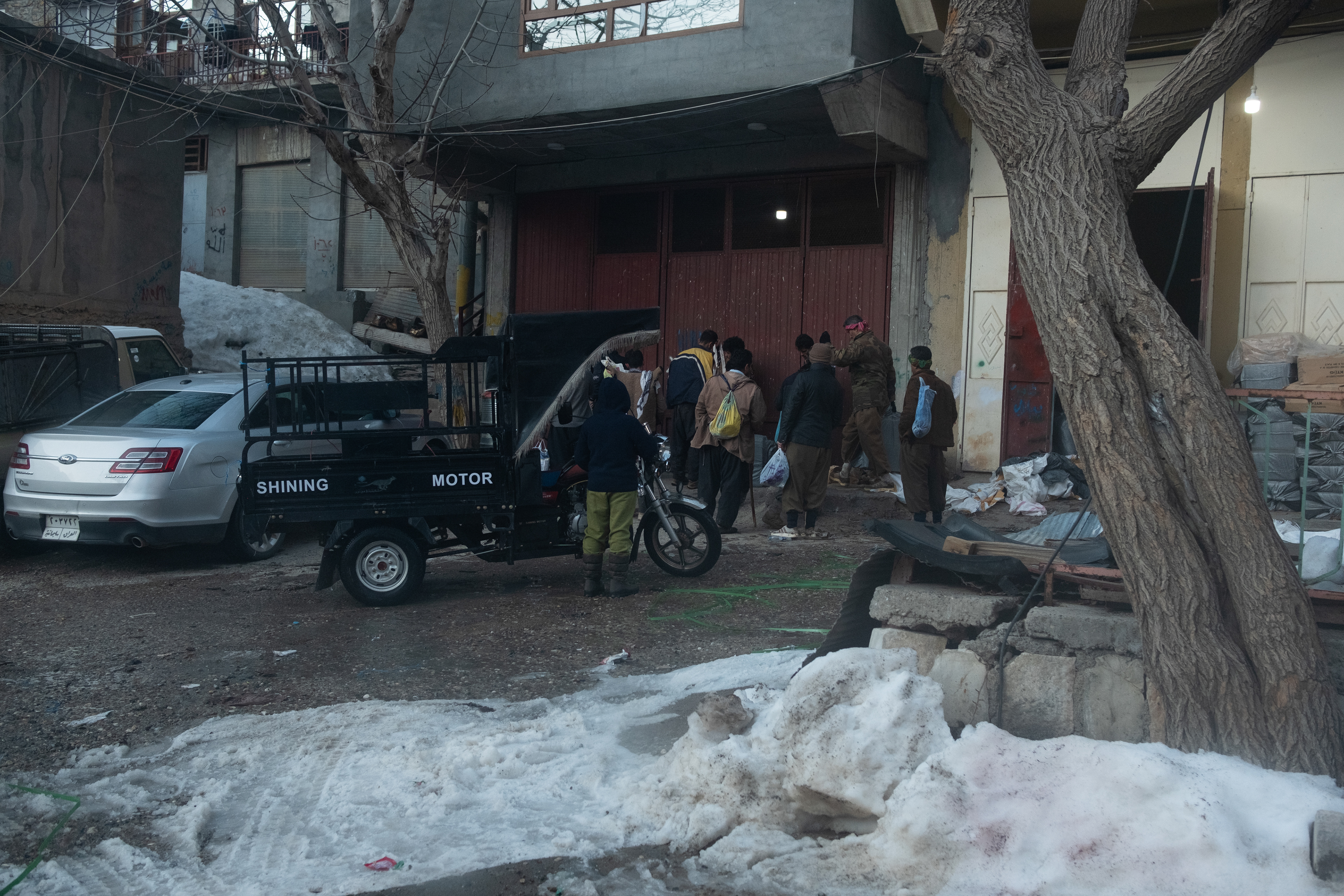
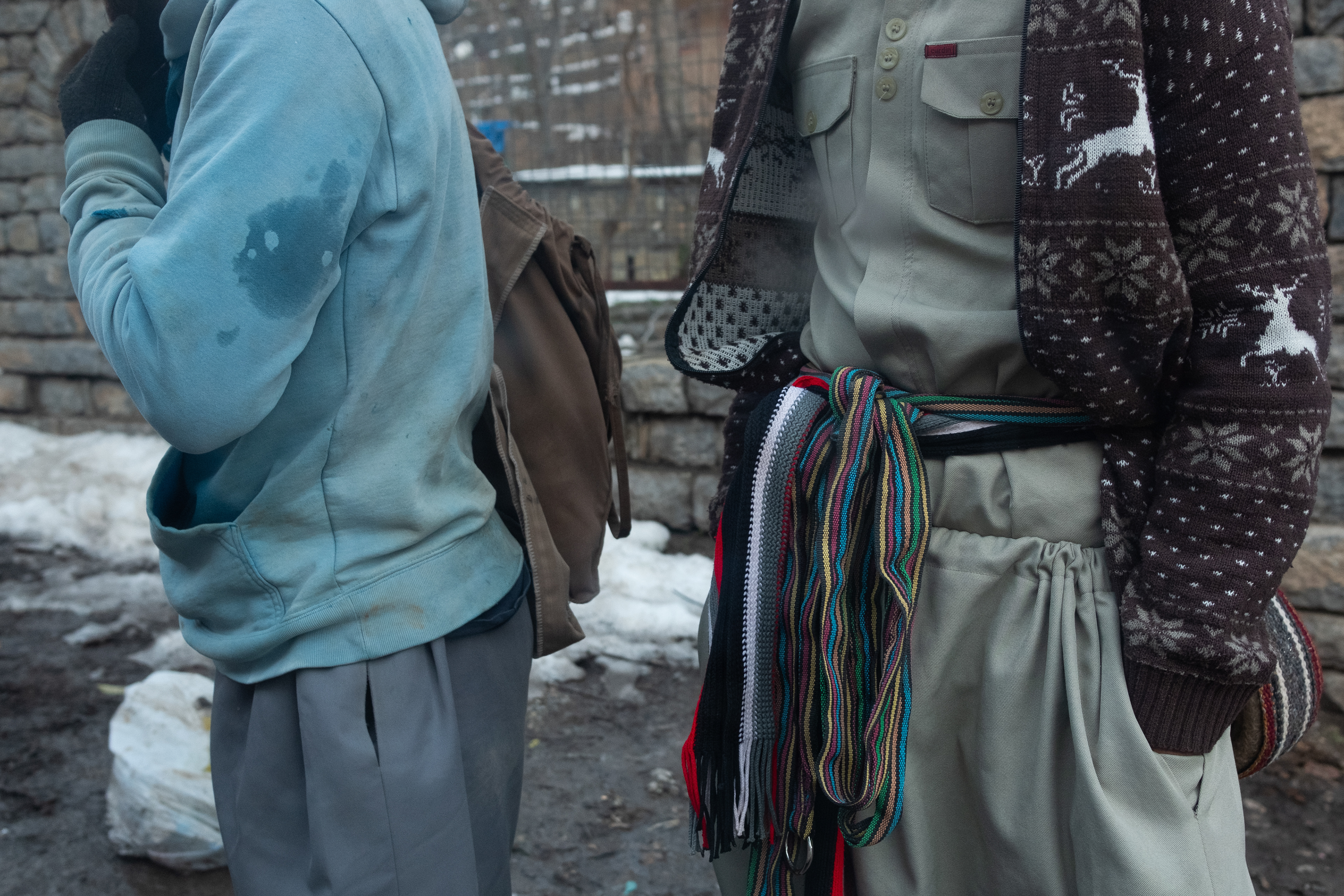
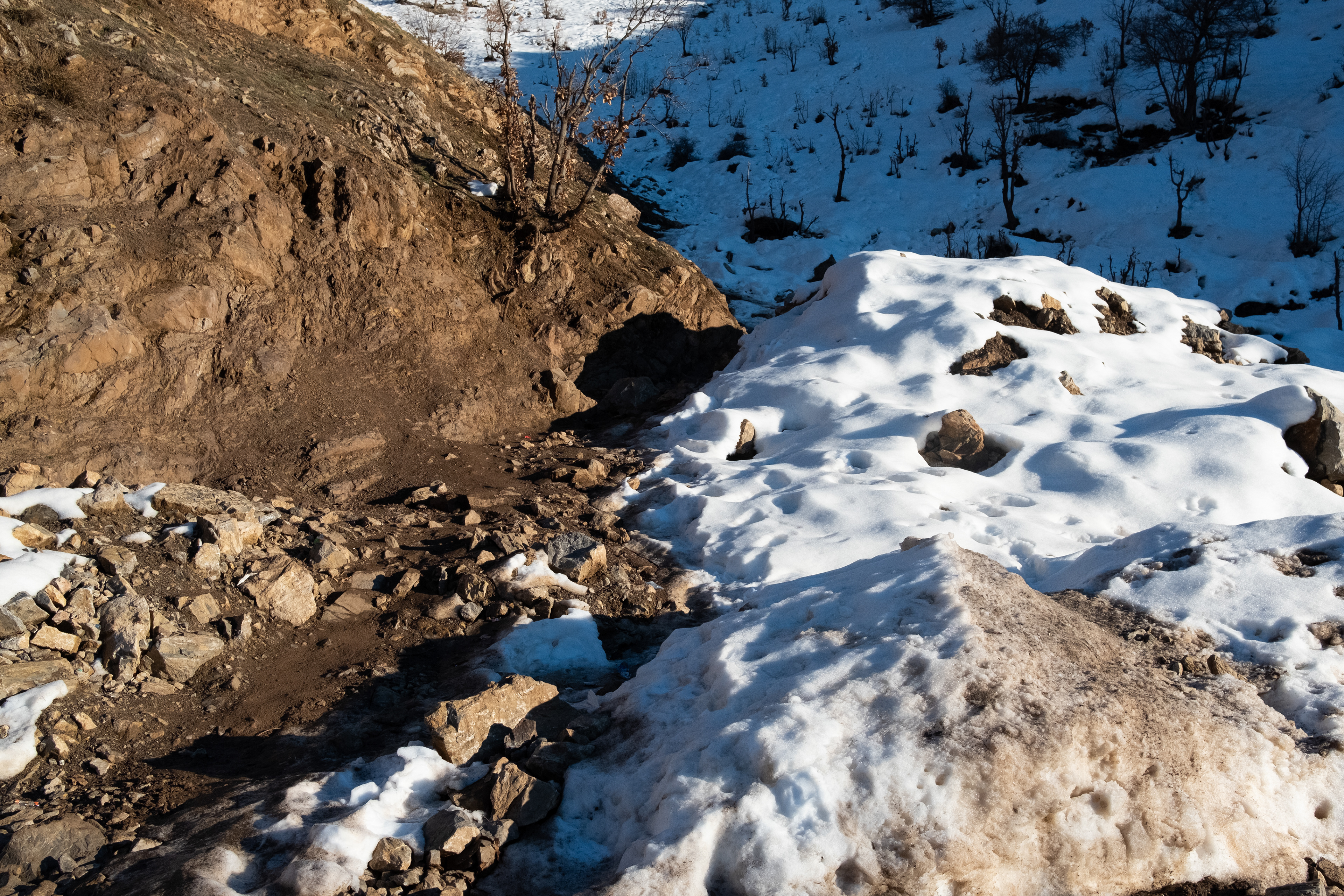
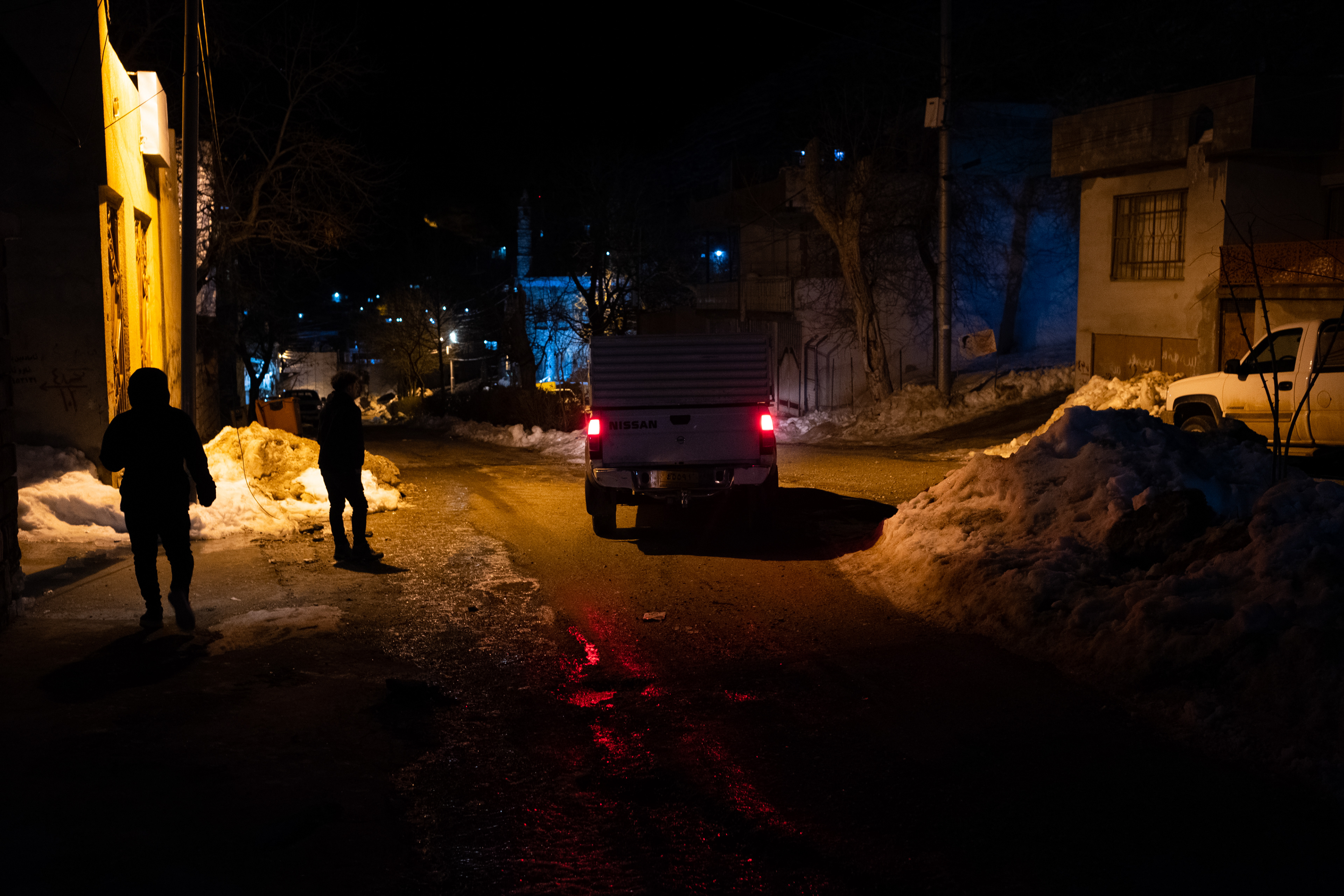
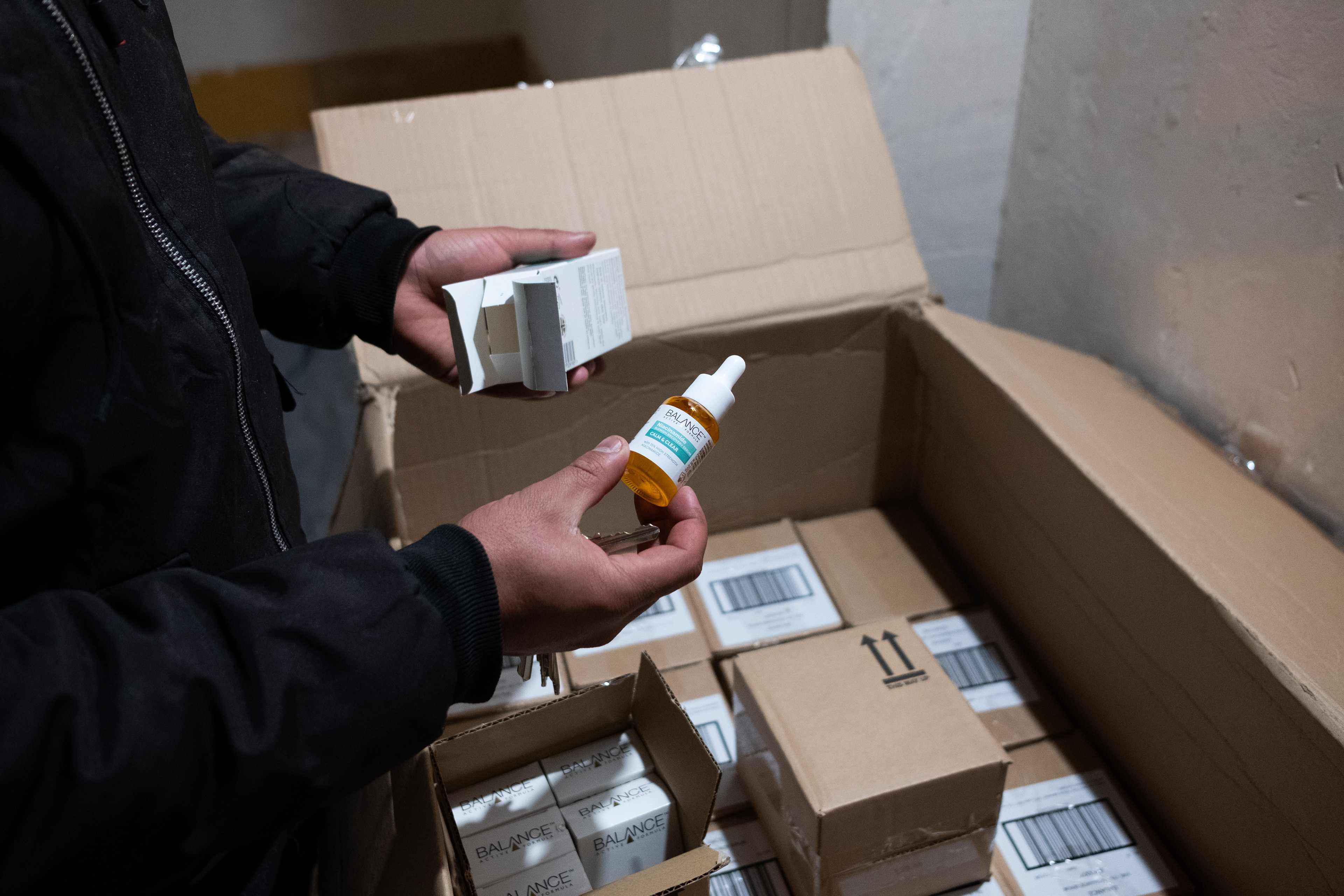
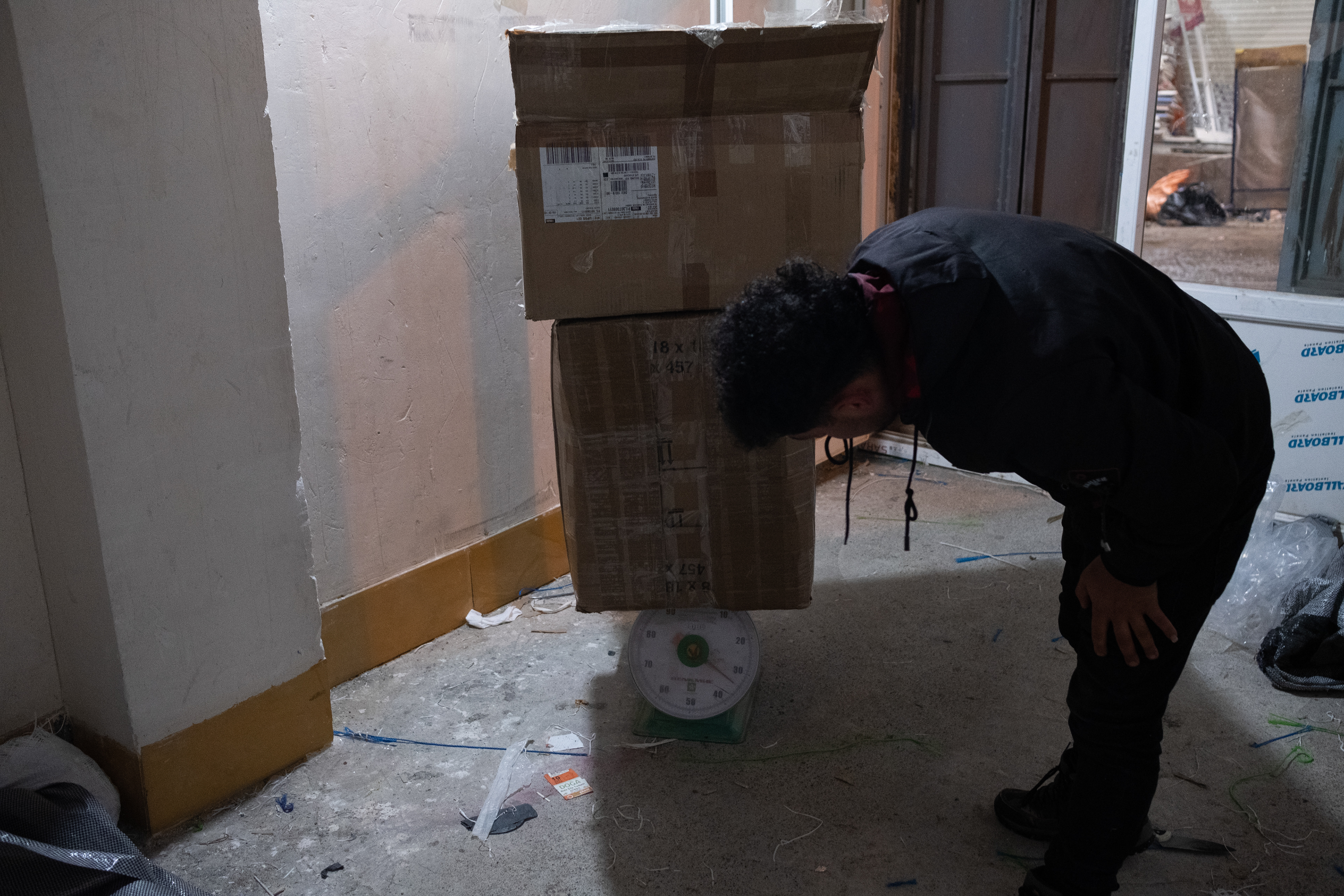
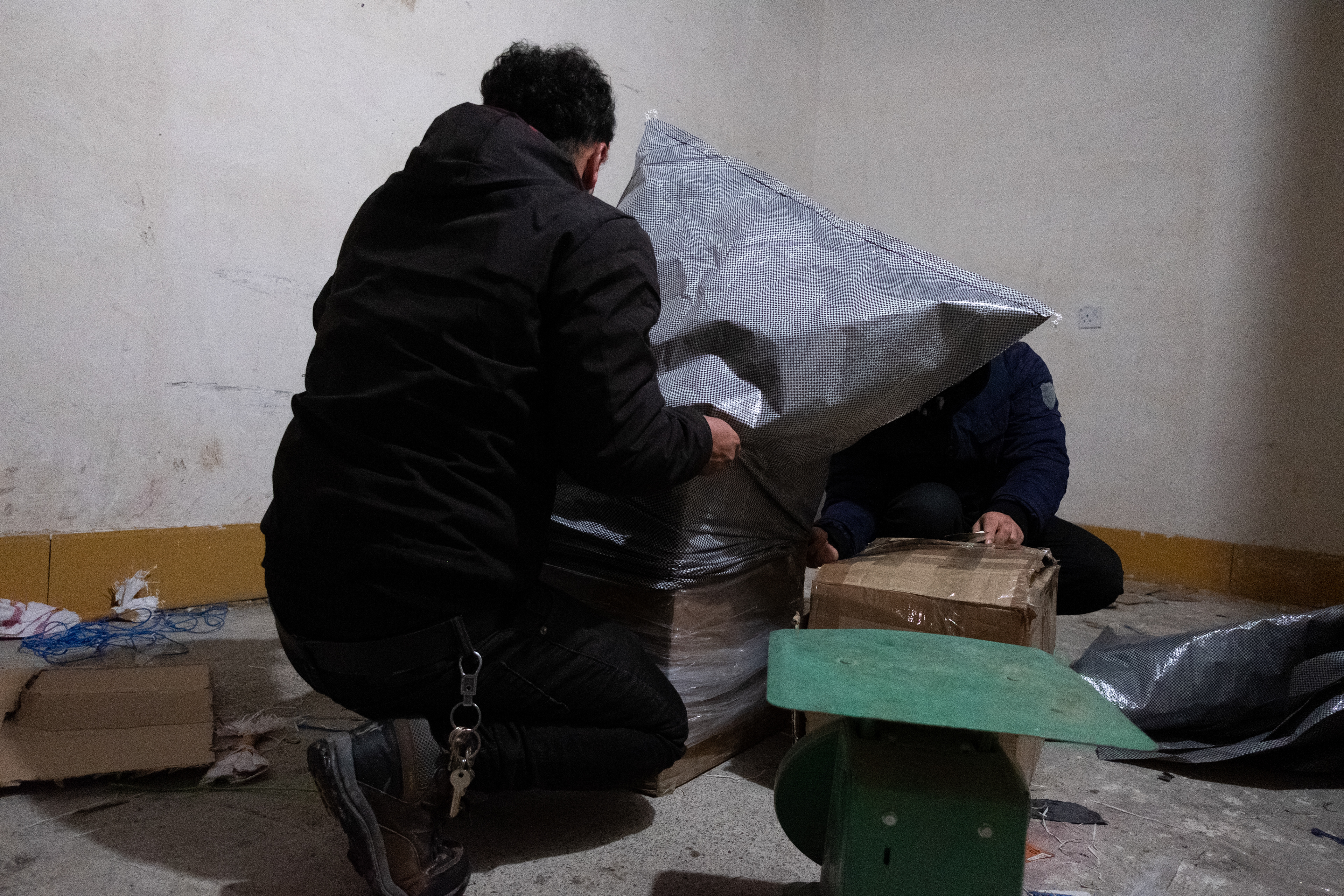
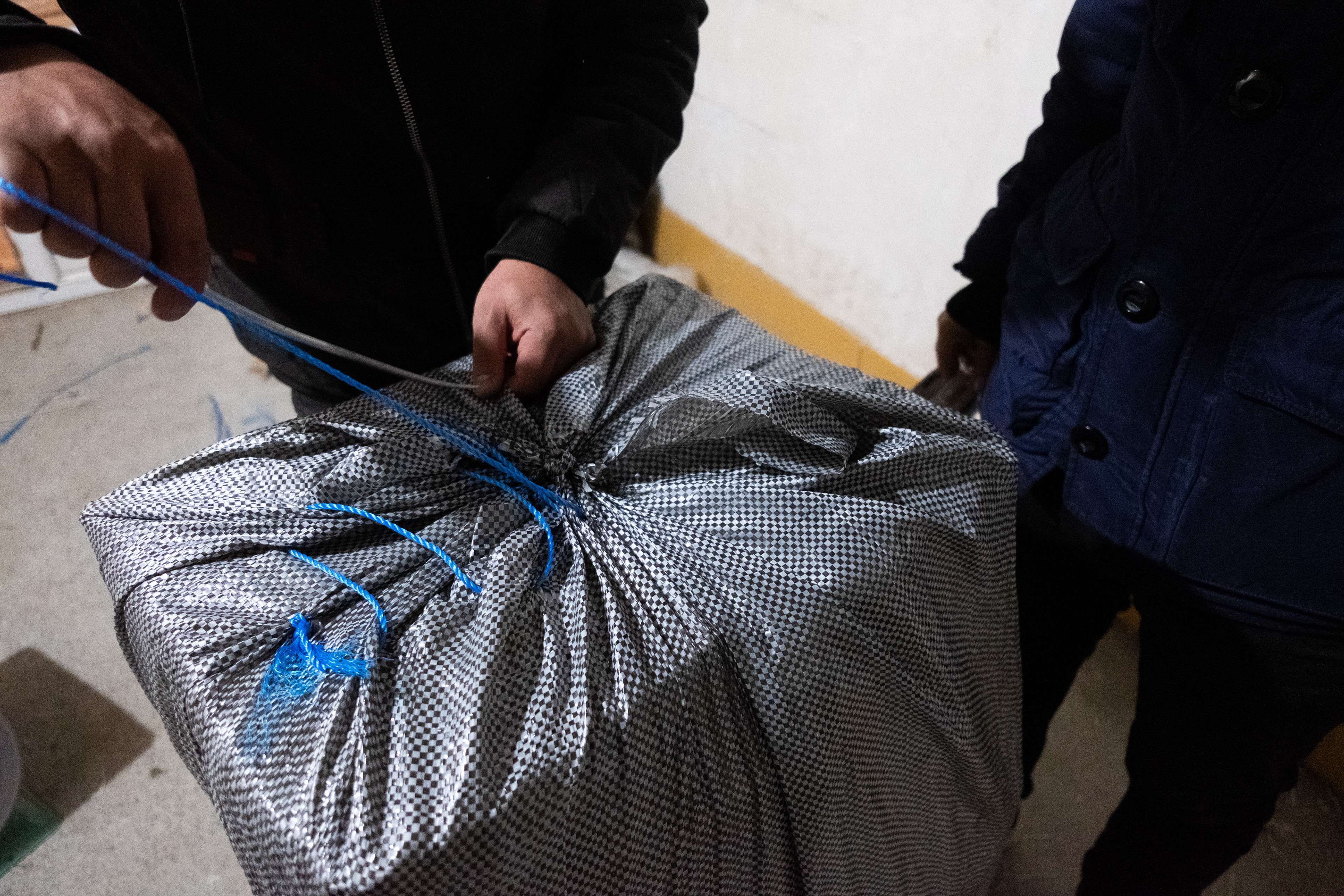
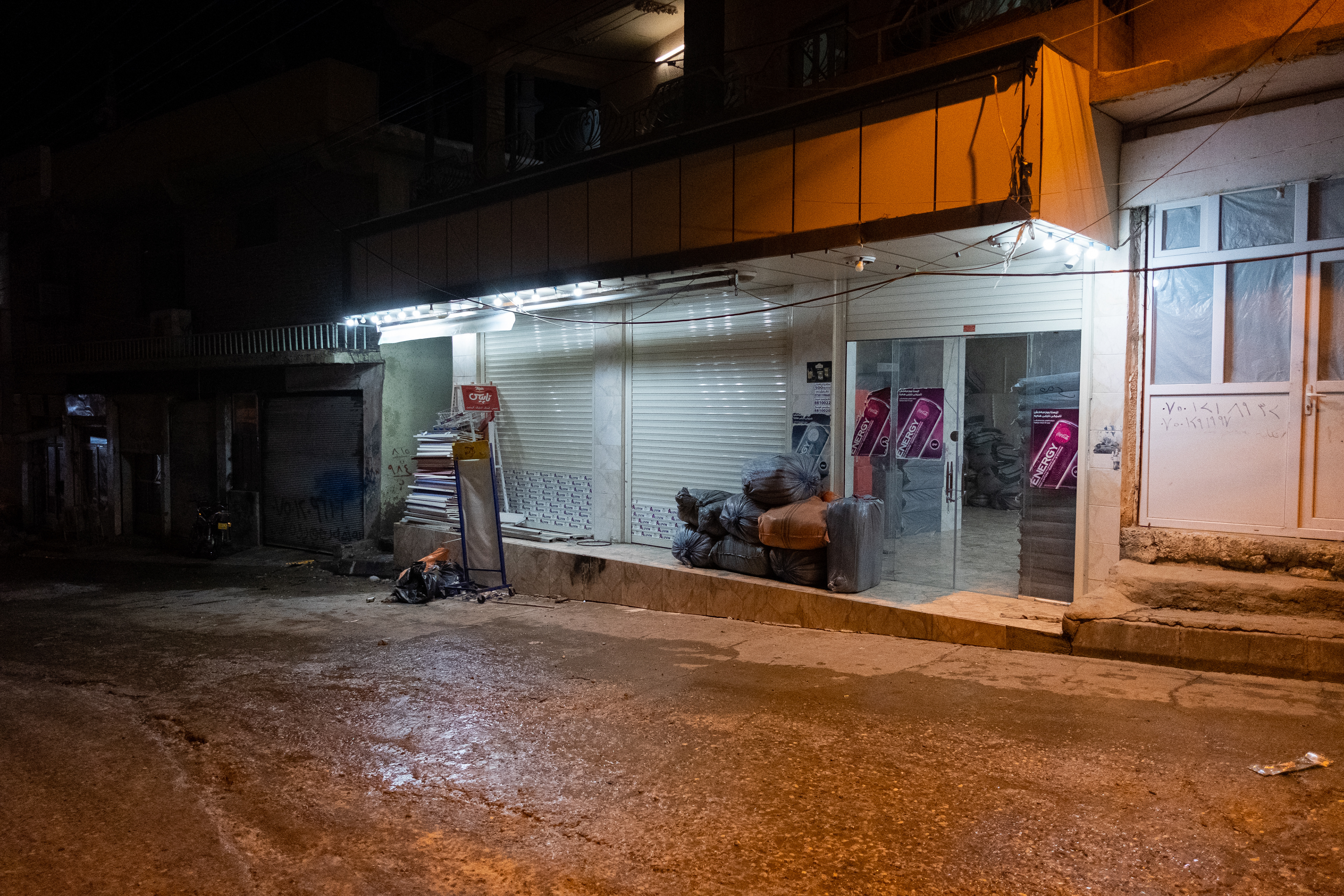
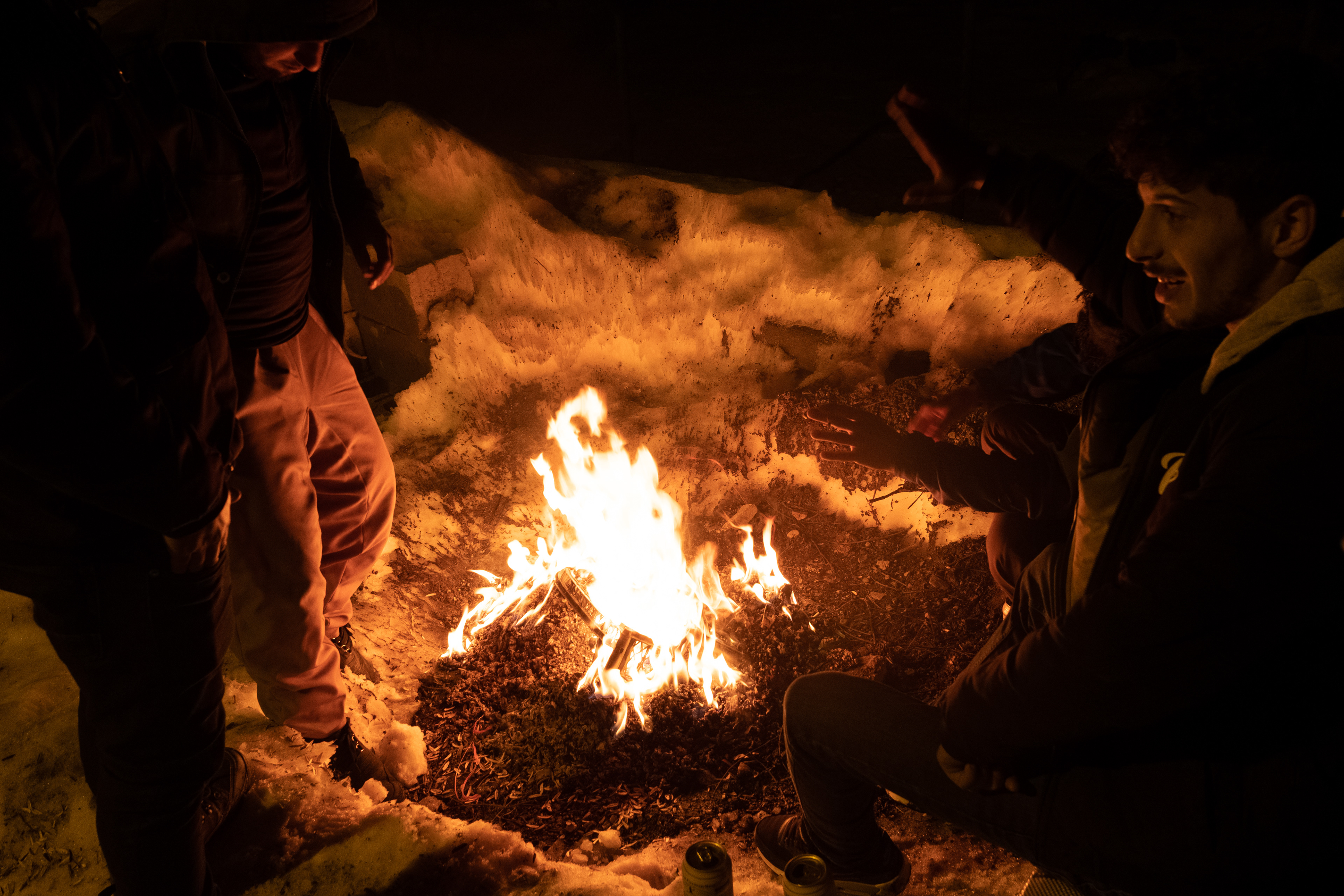
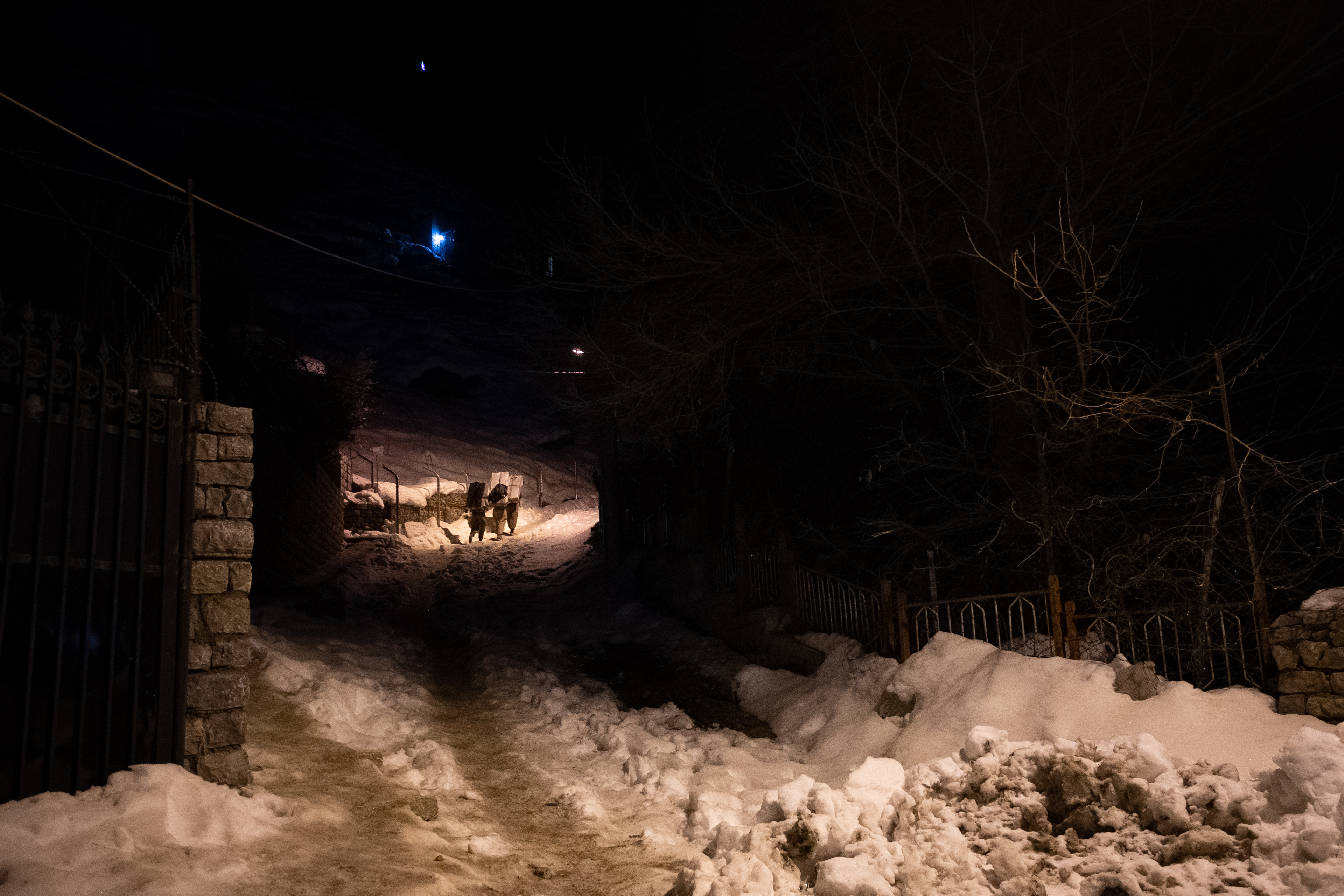
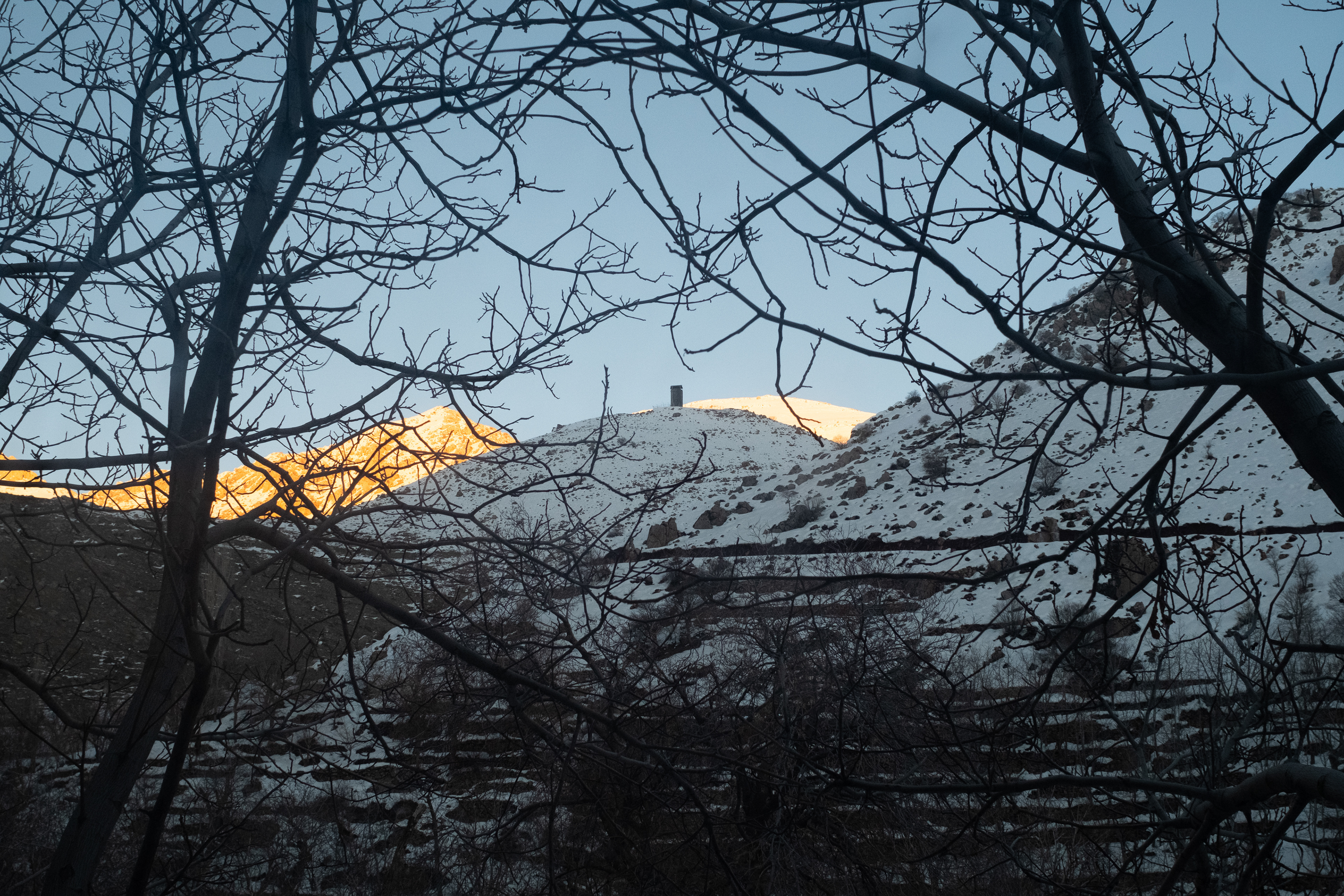
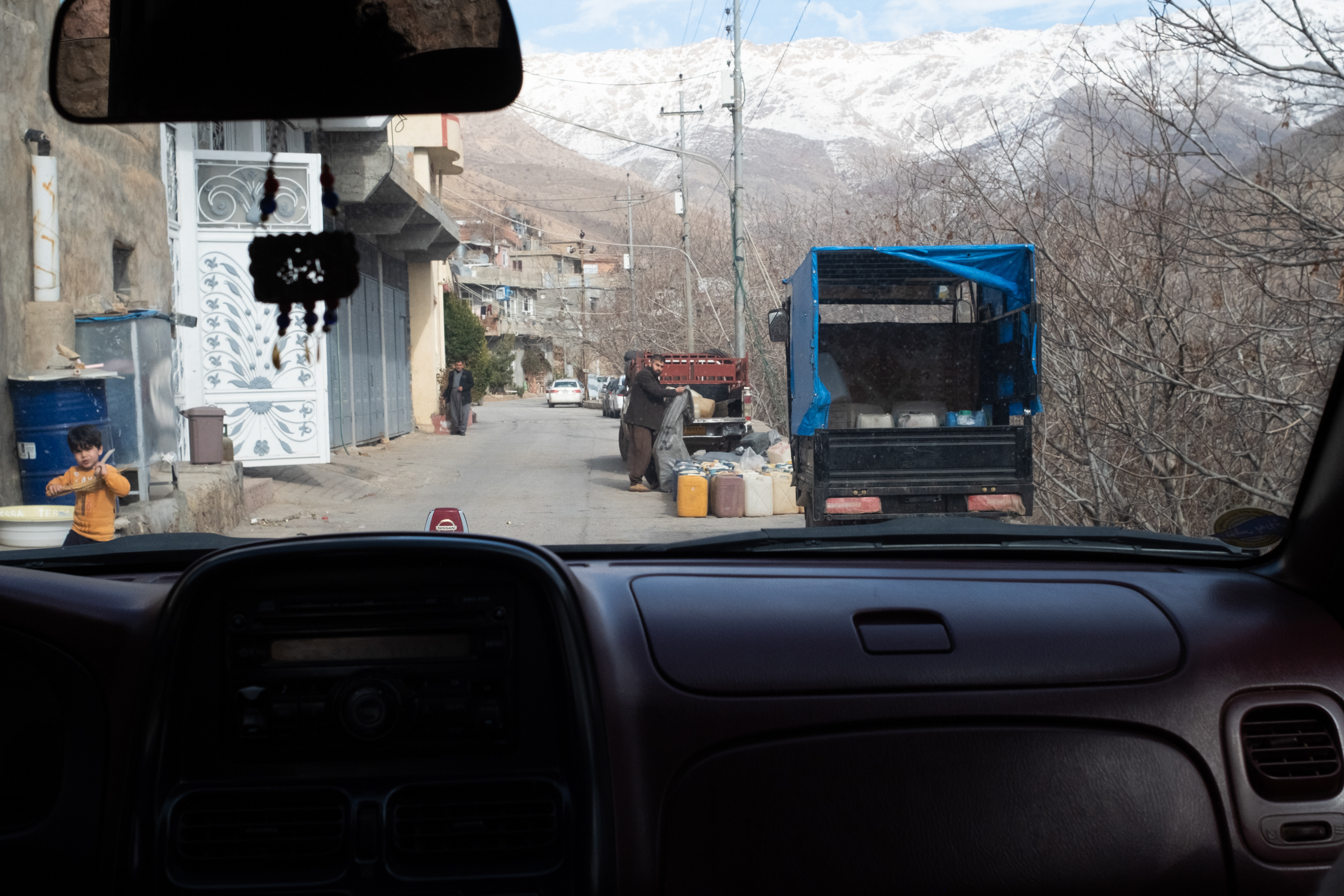
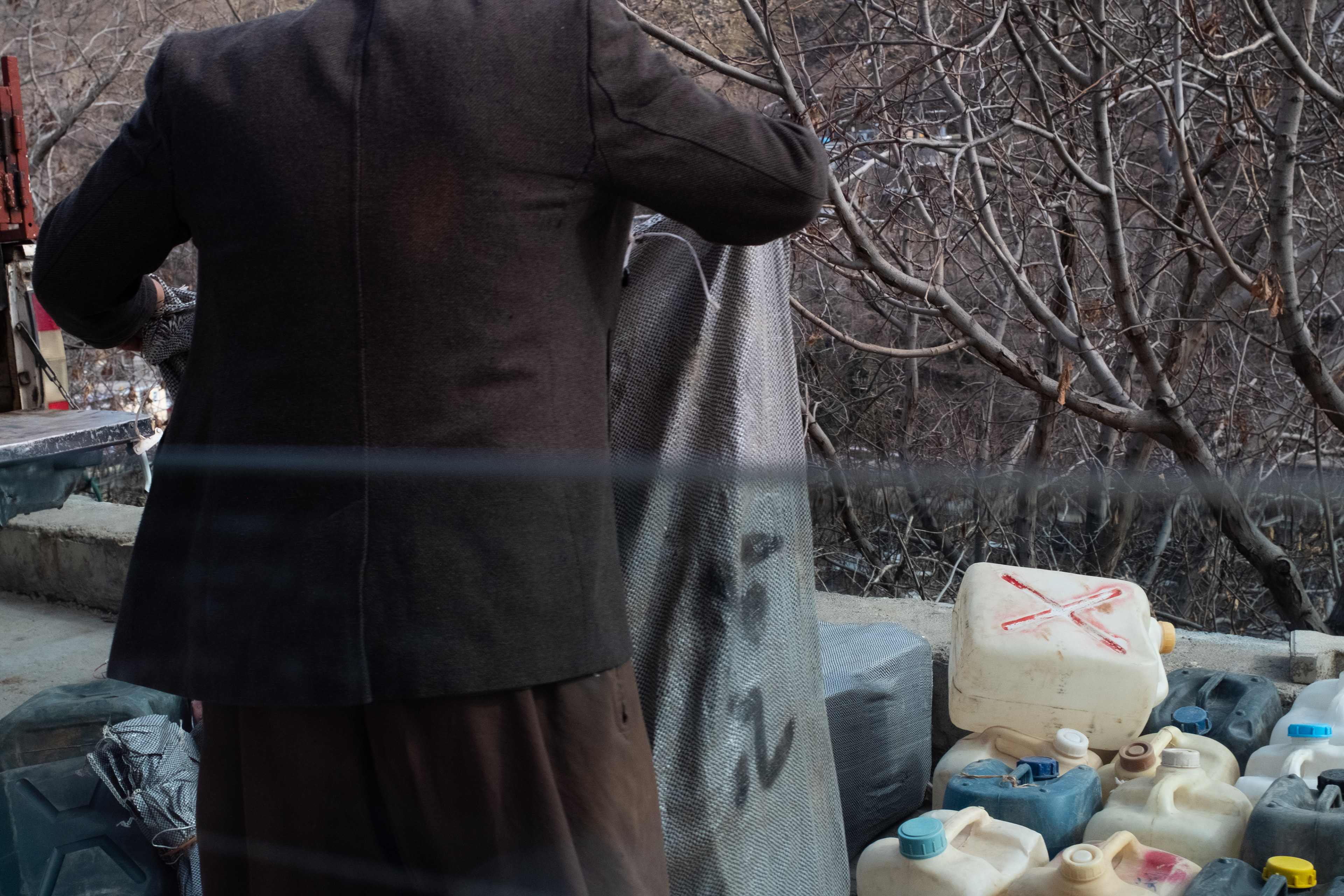
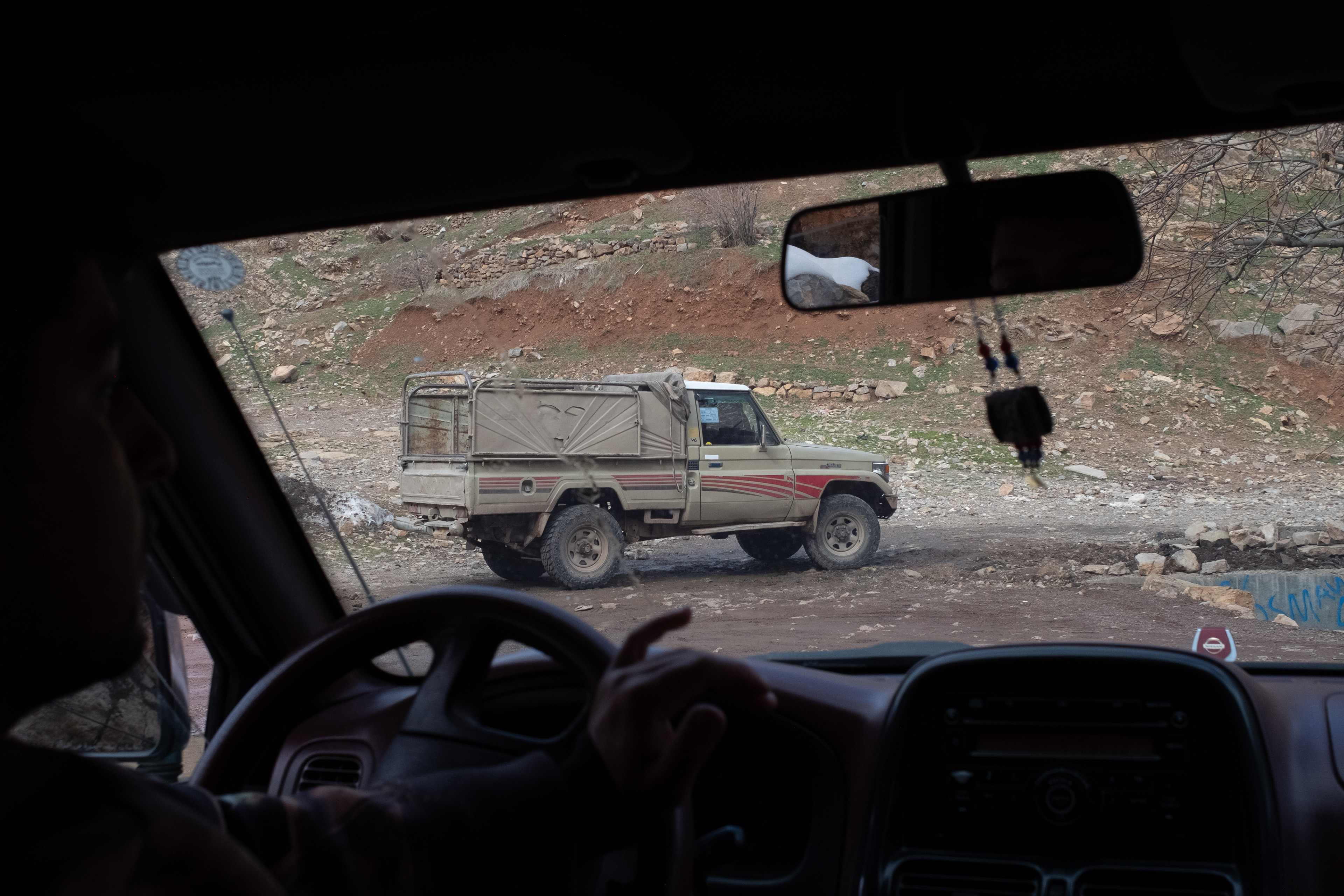
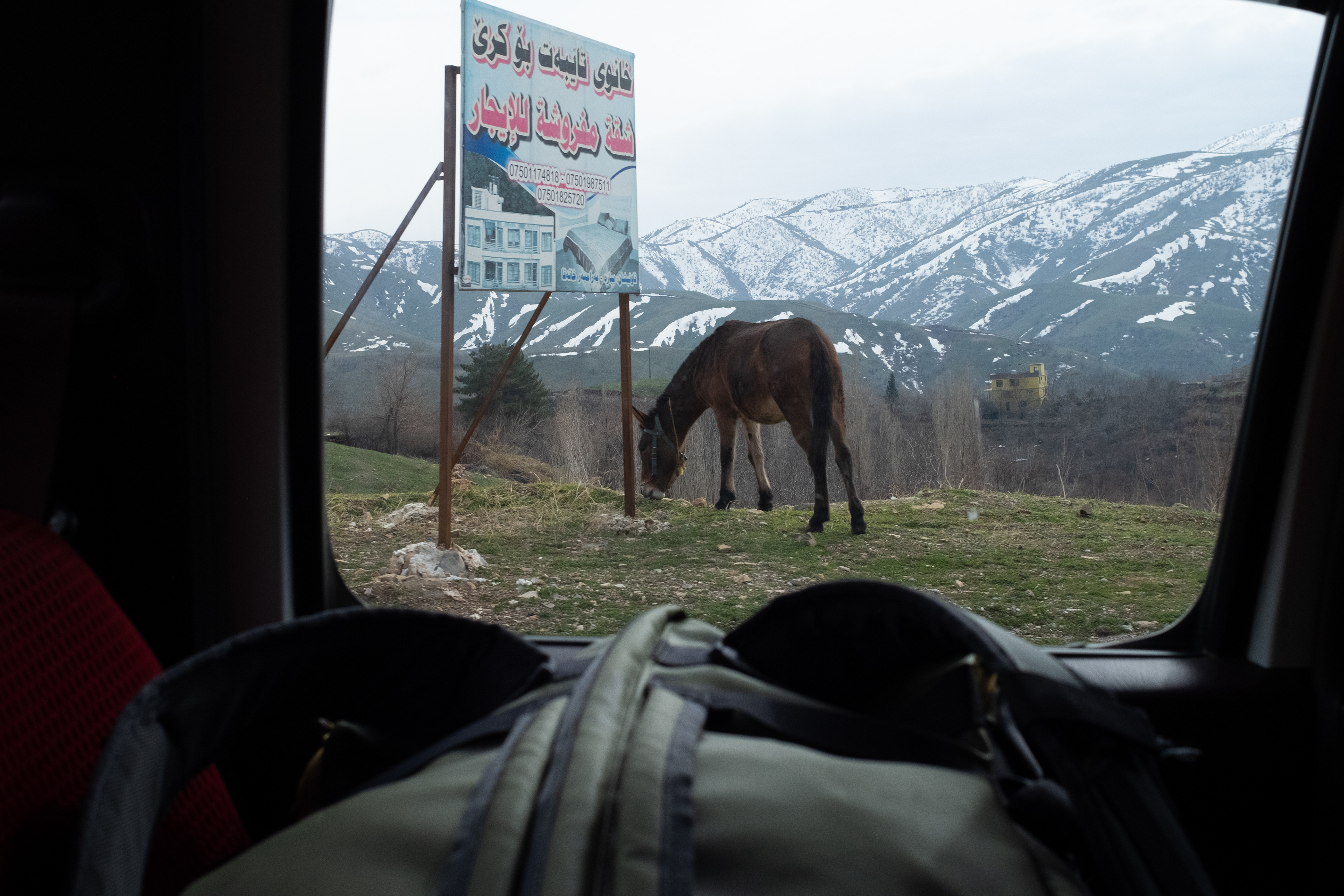
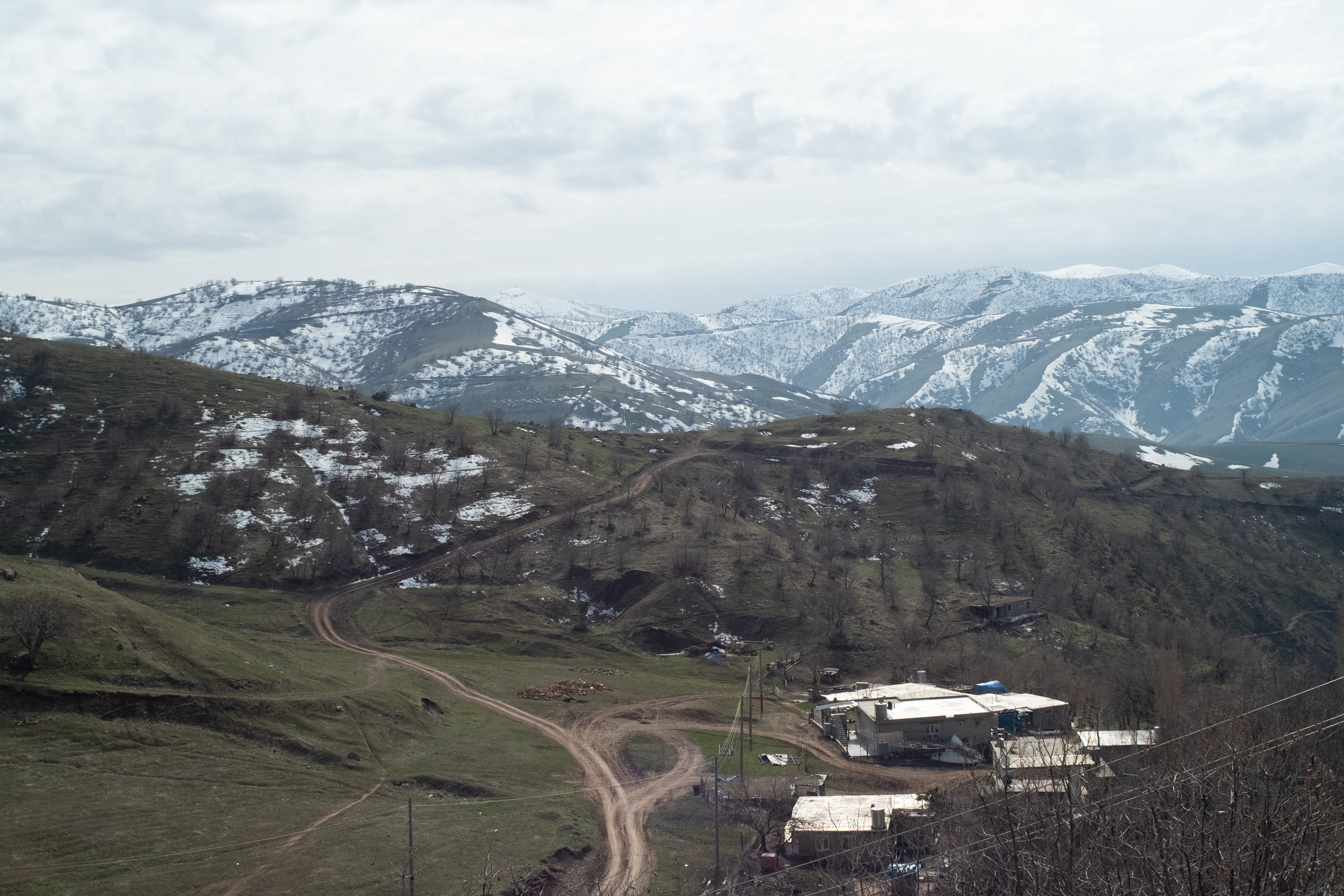
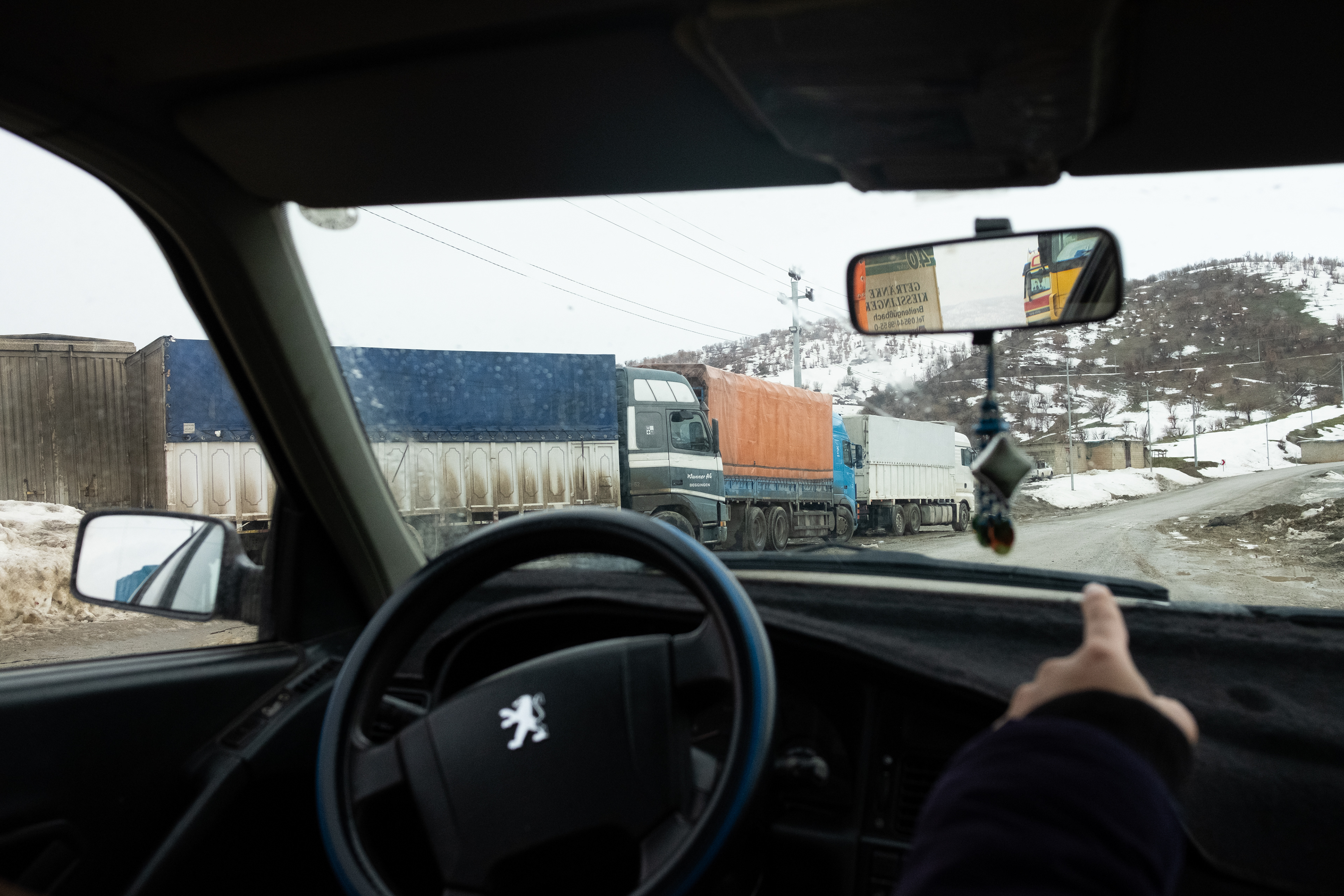
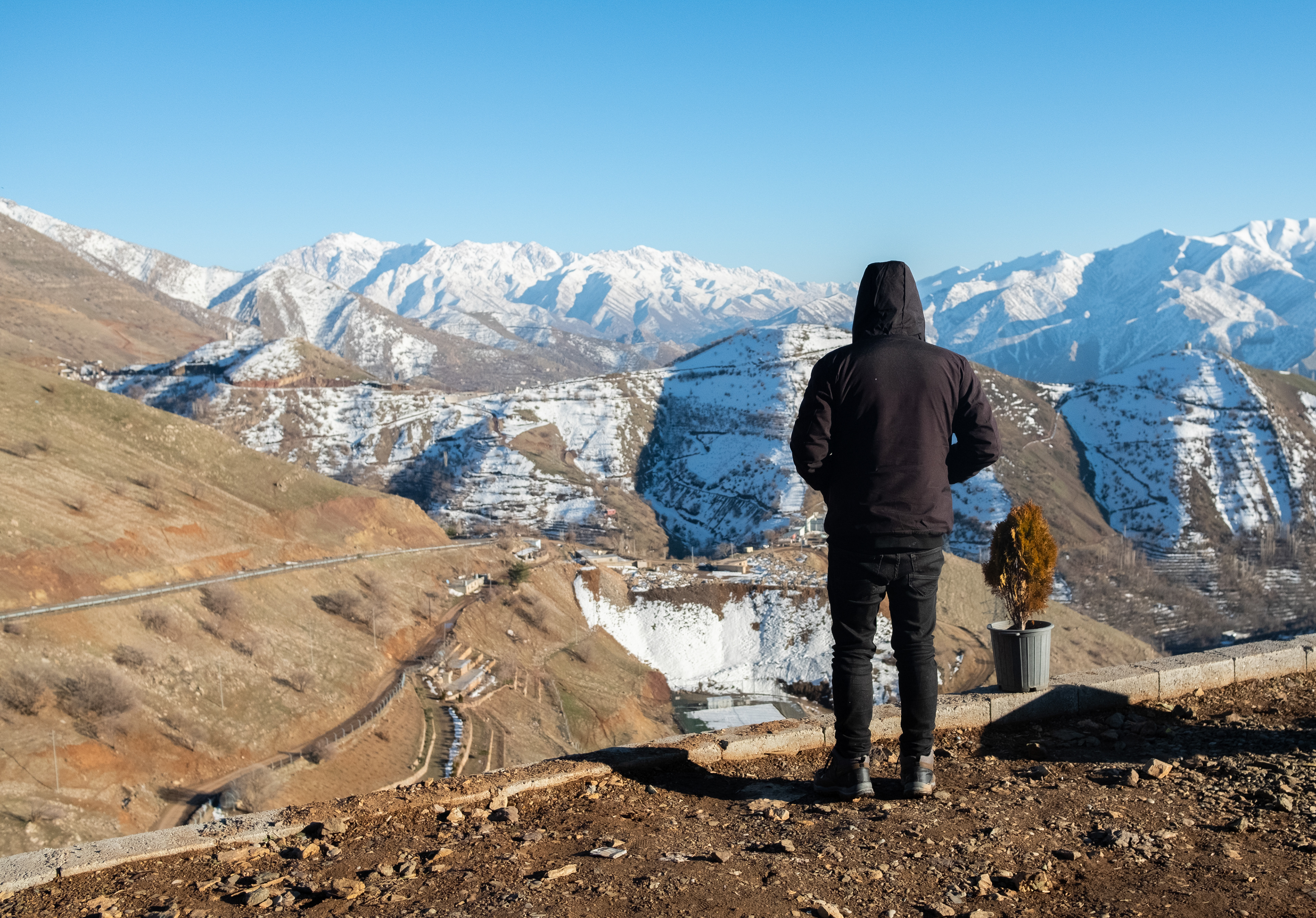
SMUGGLERS, report in the Iraqi Kurdistan region on the Iran-Iraq border on the black market between Iran and Iraq. More specifically, the Government of the Kurdistan Autonomous Region (GRK).
°"Here in Tawela, either you live on the black market or you are a peasant. The land is not very fertile. Agriculture does not allow you to live properly," says Khaled. He is 22 years old, his family has been working on the black market since the end of the Iran-Lrak War. His grandfather had fled the village during the war, to return just before the end of the war, when smuggling began between the lran and the lrak. Smuggling has been seen to be a good vein because today Khaled's family has 2 storage and preparation warehouses. Almost every house houses a warehouse on the ground floor.
They are high, 2 floors on average, cubic. Some do not have plaster on the walls. This makes the scene a little cold and murky. It is on the ground floor that televisions, beauty products and food are packed.
Even where the goods are stored while waiting for the arrival of the Kolbars. These products are purchased by mail order by Iranian merchants in Iraqi Kurdistan, Iraq, and around the world. Today mainly in Asia. Once packaged, the products are transported to Iran through the mountains by the Kolbars
-(Kolbars, literally those who wear on their backs, in Kurdish)-.
Each Kolbar carries about 30 to 35 Kg on its back, through the mountains and minefields of the Iran-Lrak war, while avoiding the patrols and watchtowers of the Iranian border guards. All paid $24. °
For security reasons, the names have been changed.
Excerpt from the report.